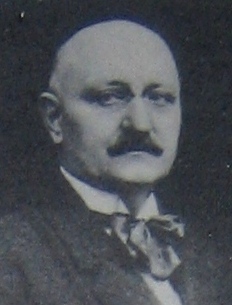|
Filaret Barbu
Filaret Barbu (April 16, 1903 – May 31, 1984) was a Romanian operetta composer. Life Filaret Barbu was the son of Iosif Hazi Barbu, a pork butcher, and Ema Barbu (''née'' Dragoș). During his childhood he often heard traditional Romanian lăutari and taraf bands in his grandfather's inn. He went to school in Lugoj and Caransebeș. He studied the violin and the counterpoint at the New Vienna Conservatory during 1922—1926. Back in Romania, he became a music teacher at "Coriolan Brediceanu" High School in Lugoj and the conductor of "Ion Vidu" choir, which he founded in 1922. In 1931, after the death of Ion Vidu, he became the leader of the local choir "Reuniunea română de muzică și cântări". His debut work was the 1924 vaudeville ''Privighetoarea albă'' (''The White Nightingale''). He also wrote a monographic study dedicated to tenor Traian Grozăvescu and a collection of choir songs titled ''Portativ bănățean'' (''The Banat Staff''). He died in 1984 in Timișo ... [...More Info...] [...Related Items...] OR: [Wikipedia] [Google] [Baidu] |
Lugoj
Lugoj (; ; ; ; ; ) is a list of cities and towns in Romania, city in Timiș County, Romania. The Timiș, Timiș River divides the city into two halves: the "Romanian Lugoj" that spreads on the right bank, and the "German Lugoj" on the left bank. The city administers two villages, Măguri and Tapia. Etymology The origin of the toponym ''Lugoj'' has generated a series of controversies over time. claims that it derives from the Latin language, Latin word "lucus" (grove, small forest). Iorgu Iordan, in his ''Romanian Toponymy'', accepts the origin of the name from the Slavic prefix "lug-" or "luh-" (swamp forest) and the Hungarian suffix "-os". However, linguist Simion Dănilă claims that the name of the city has its origin in the word "logos," a Banat doublet for "rogoz" (sedge, a hydrophilous plant). All these hypotheses refer to the swampy areas that once surrounded the city. Geography Lugoj is located in southwestern Romania, in central-eastern Timiș County, in the historica ... [...More Info...] [...Related Items...] OR: [Wikipedia] [Google] [Baidu] |
Ion Vidu
Ion Vidu ( – 7 February 1931), was a Romanian composer and choral conductor. Under his influence the small town of Lugoj, which up until that time had not that much in the way of artistic institutions, became a well-known center of choral music in Romania.Viorel Cosma, "Vidu, Ion" in Sadie, Stanley; John Tyrrell, eds. (2001). ''The New Grove Dictionary of Music and Musicians'', 2nd edition. New York: Grove's Dictionaries. . Vidu was born in Mânerău, Arad County, Austrian Empire, where he initially studied music at the Arad Conservatory (1880–1881) and later at Caransebeș in the Banat region just south of Arad (1885). . Accessed 3 November 2009. From 1890 to 1891 he attended the Conservatory of Music and Declamation in |
1984 Deaths
__NOTOC__ The following is a list of notable deaths in 1984. Entries for each day are listed alphabetically by surname. A typical entry lists information in the following sequence: * Name, age, country of citizenship at birth, subsequent country of citizenship (if applicable), reason for notability, cause of death (if known), and reference. Deaths in 1984 January * January 1 ** Alexis Korner, British blues musician and broadcaster (b. 1928) ** Joaquín Rodríguez Ortega, Spanish bullfighter (b. 1903) * January 5 – Giuseppe Fava, Italian writer (b. 1925) * January 6 – Ernest Laszlo, Hungarian-American cinematographer (b. 1898) * January 7 – Alfred Kastler, French physicist, Nobel Prize laureate (b. 1902) * January 9 – Sir Deighton Lisle Ward, 4th Governor-General of Barbados (b. 1909) * January 11 – Jack La Rue, American actor (b. 1902) * January 14 ** Saad Haddad, Lebanese military officer and militia leader (b. 1936) ** Ray Kroc, American entrepreneur (b. 1902) * J ... [...More Info...] [...Related Items...] OR: [Wikipedia] [Google] [Baidu] |
1903 Births
Events January * January 1 – Edward VII is proclaimed Emperor of India. * January 10 – The Aceh Sultanate was fully annexed by the Dutch East Indies, Dutch forces, deposing the last sultan, marking the end of the Aceh War that have lasted for almost 30 years. * January 19 – The first west–east transatlantic radio broadcast is made from the United States to England (the first east–west broadcast having been made in 1901#December, 1901). February * February 13 – Venezuelan crisis of 1902–03, Venezuelan crisis: After agreeing to arbitration in Washington, the United Kingdom, Germany and Italy reach a settlement with Venezuela resulting in the Washington Protocols. The naval blockade that began in 1902 ends. * February 23 – Cuba leases Guantánamo Bay to the United States "in perpetuity". March * March 2 – In New York City, the Martha Washington Hotel, the first hotel exclusively for women, opens. * March 3 – The British Admir ... [...More Info...] [...Related Items...] OR: [Wikipedia] [Google] [Baidu] |
Staff (music)
In Western musical notation, the staff"staff" in the Collins English Dictionary "in British English: also called: stave; plural: staffs or staves""staff" in the Merriam-Webster Dictionary /ref> ( UK also stave; : ''staffs'' or ''staves''), also occasionally referred to as a pentagram, is a set of five horizontal lines and four spaces that each represent a different musical pitc ... [...More Info...] [...Related Items...] OR: [Wikipedia] [Google] [Baidu] |
Banat
Banat ( , ; ; ; ) is a geographical and Historical regions of Central Europe, historical region located in the Pannonian Basin that straddles Central Europe, Central and Eastern Europe. It is divided among three countries: the eastern part lies in western Romania (the counties of Timiș County, Timiș, Caraș-Severin County, Caraș-Severin, Arad County, Arad south of the Mureș (river), Mureș river, and the western part of Mehedinți County, Mehedinți); the western part of Banat is in northeastern Serbia (mostly included in Vojvodina, except for a small part included in the Belgrade, Belgrade Region); and a small northern part lies within southeastern Hungary (Csongrád-Csanád County). The region's historical ethnic diversity was severely affected by the events of World War II. Today, Banat is mostly populated by ethnic Romanians, Serbs and Hungarians, but small populations of other ethnic groups also live in the region. Nearly all are citizens of either Serbia, Romania or H ... [...More Info...] [...Related Items...] OR: [Wikipedia] [Google] [Baidu] |
Traian Grozăvescu
Traian Grozăvescu (21 November 1895 – 15 February 1927) was an Austro-Hungarian-born Romanian operatic tenor. Born in Lugoj, he served in the Austro-Hungarian Army in World War I. In 1922, following a disagreement with the Cluj Opera, he left for Vienna and sang at the Vienna State Opera, as well as at the Hungarian State Opera House and the Berlin State Opera The Staatsoper Unter den Linden ( State Opera under the Lime Trees), also known as the Berlin State Opera (), is a listed building on Unter den Linden boulevard in the historic center of Berlin, Germany. The opera house was built by order of P ..., achieving great success. Death He was killed with a revolver by his jealous wife and buried in his native town. ''Universul literar'', year XLIV, nr. 47/18 November 1928, ... [...More Info...] [...Related Items...] OR: [Wikipedia] [Google] [Baidu] |
Nightingale
The common nightingale, rufous nightingale or simply nightingale (''Luscinia megarhynchos''), is a small passerine bird which is best known for its powerful and beautiful song. It was formerly classed as a member of the thrush family Turdidae, but is now more generally considered to be an Old World flycatcher, Muscicapidae. It belongs to a group of more terrestrial species, often called chats. Etymology "Nightingale" is derived from "night" and the Old English ''galan'', "to sing". The genus name ''Luscinia'' is Latin for "nightingale" and ''megarhynchos'' is from Ancient Greek ''megas'', "great" and ''rhunkhos'' "bill". Subspecies *Western nightingale (''L. m. megarhynchos'') – western Europe, North Africa and Asia Minor, wintering in tropical Africa *Caucasian nightingale (''L. m. africana'') – the Caucasus and eastern Turkey to southwestern Iran and Iraq, wintering in East Africa *Eastern nightingale (''L. m. golzii'') – the Aral Sea to Mongolia, wintering in co ... [...More Info...] [...Related Items...] OR: [Wikipedia] [Google] [Baidu] |
Vaudeville
Vaudeville (; ) is a theatrical genre of variety entertainment which began in France in the middle of the 19th century. A ''vaudeville'' was originally a comedy without psychological or moral intentions, based on a comical situation: a dramatic composition or light poetry, interspersed with songs and dances. Vaudeville became popular in the United States and Canada from the early 1880s until the early 1930s, while changing over time. In some ways analogous to music hall from Victorian Britain, a typical North American vaudeville performance was made up of a series of separate, unrelated acts grouped together on a common bill. Types of acts have included popular and classical musicians, singers, dancers, comedians, trained animals, magicians, ventriloquists, strongmen, female and male impersonators, acrobats, clowns, illustrated songs, jugglers, one-act plays or scenes from plays, athletes, lecturing celebrities, minstrels, and films. A vaudeville performer ... [...More Info...] [...Related Items...] OR: [Wikipedia] [Google] [Baidu] |
Neues Wiener Konservatorium (briefly its director), Simon Pullman and Severin Eisenberger.
The Neues Wiener Konservatorium (New Vienna Conservatory) was a music school established in Vienna by Theobald Kretschmann in 1909. In 1929, it had the largest number of enrolled students during its lifetime. Other names include ''Privatmusikschule Theobald Kretschmann'' and ''Neues Konservatorium für Musik''. Among its faculty were Richard Robert Richard Robert (25 March 1861 – 1 February 1924 in Kaltenleutgeben) Retrieved 28 August 2013 External links History [...More Info...] [...Related Items...] OR: [Wikipedia] [Google] [Baidu] |
Timișoara
Timișoara (, , ; , also or ; ; ; see #Etymology, other names) is the capital city of Timiș County, Banat, and the main economic, social and cultural center in Western Romania. Located on the Bega (Tisza), Bega River, Timișoara is considered the informal capital city of the historical Banat region. From 1848 to 1860 it was the capital of the Serbian Vojvodina and the Voivodeship of Serbia and Banat of Temeschwar. With 250,849 inhabitants at the 2021 Romanian census, 2021 census, Timișoara is the country's List of cities and towns in Romania, fifth most populous city. It is home to around 400,000 inhabitants in its Timișoara metropolitan area, metropolitan area, while the Timișoara–Arad metropolis concentrates more than 70% of the population of Timiș and Arad County, Arad counties. Timișoara is a multicultural city, home to 21 ethnic groups and 18 religious denominations. Historically, the most numerous were the Banat Swabians, Swabian Germans, Jews and Hungarians, who ... [...More Info...] [...Related Items...] OR: [Wikipedia] [Google] [Baidu] |
Counterpoint
In music theory, counterpoint is the relationship of two or more simultaneous musical lines (also called voices) that are harmonically dependent on each other, yet independent in rhythm and melodic contour. The term originates from the Latin ''punctus contra punctum'' meaning "point against point", i.e. "note against note". John Rahn describes counterpoint as follows: Counterpoint has been most commonly identified in the European classical tradition, strongly developing during the Renaissance and in much of the common practice period, especially in the Baroque period. In Western pedagogy, counterpoint is taught through a system of species (see below). There are several different forms of counterpoint, including imitative counterpoint and free counterpoint. Imitative counterpoint involves the repetition of a main melodic idea across different vocal parts, with or without variation. Compositions written in free counterpoint often incorporate non-traditional harmonies and c ... [...More Info...] [...Related Items...] OR: [Wikipedia] [Google] [Baidu] |







